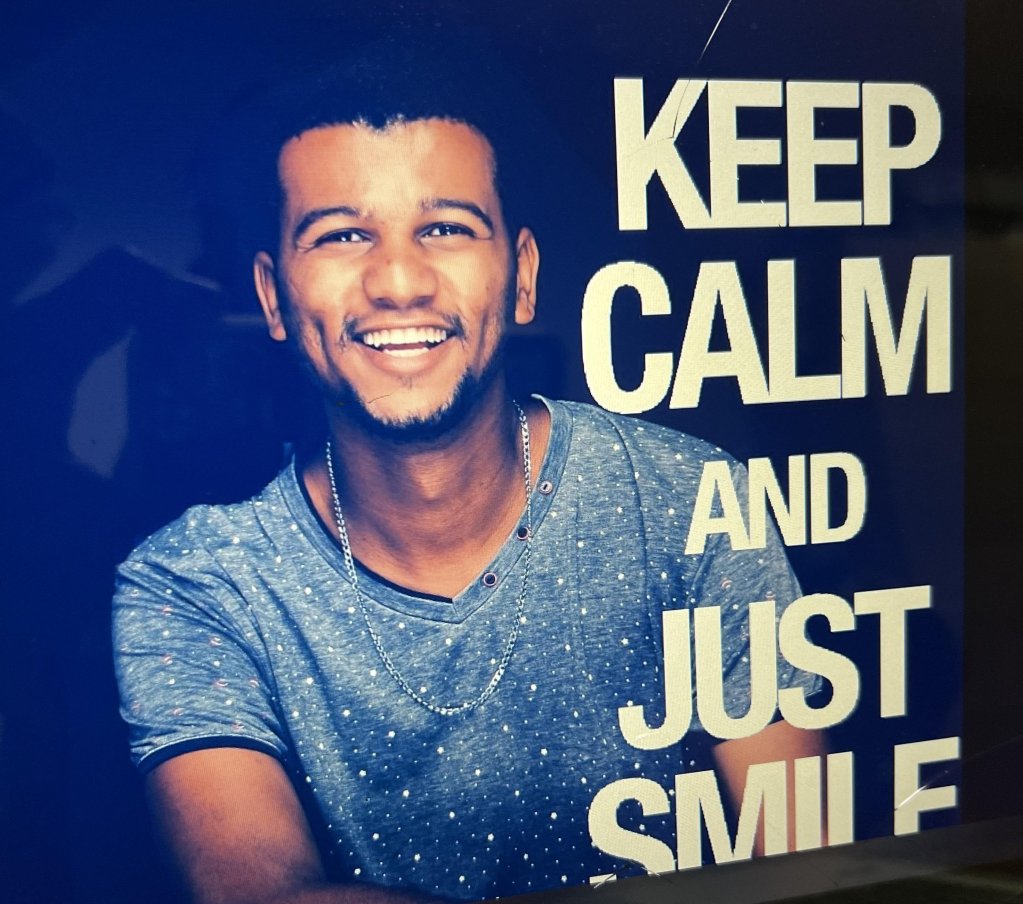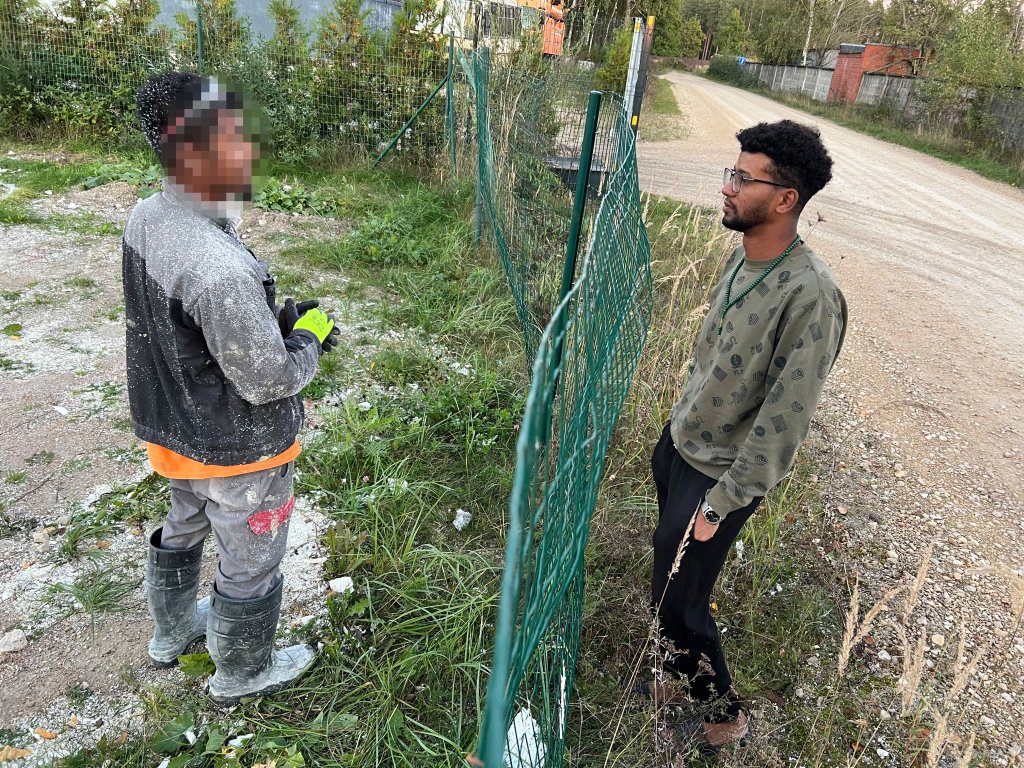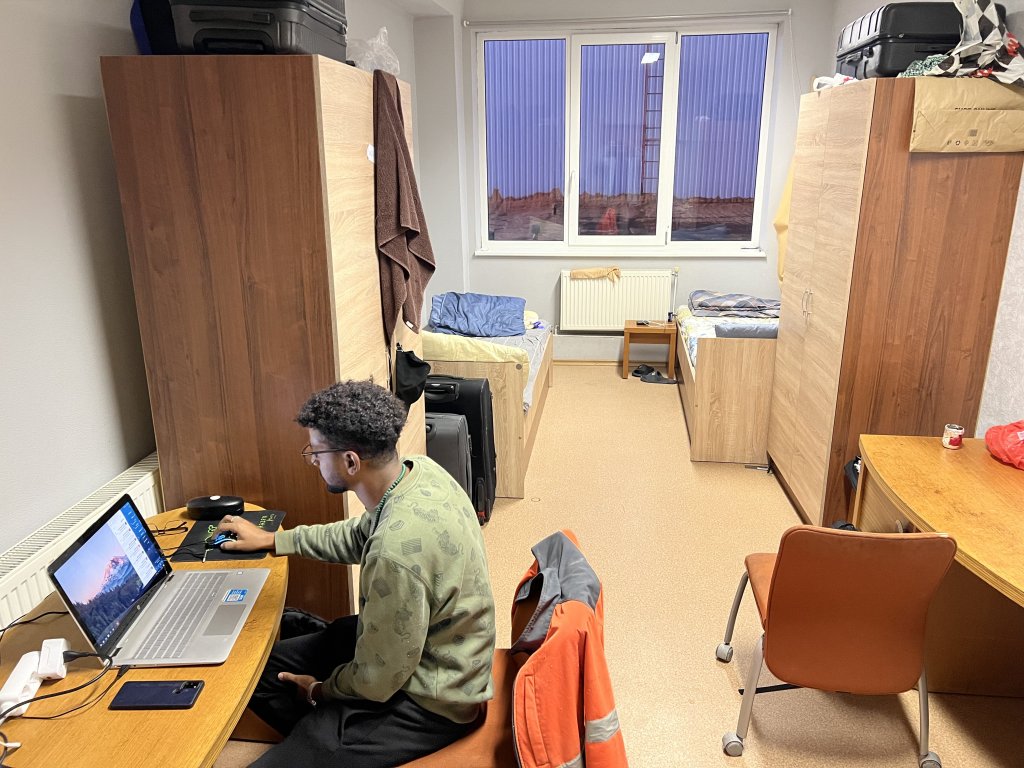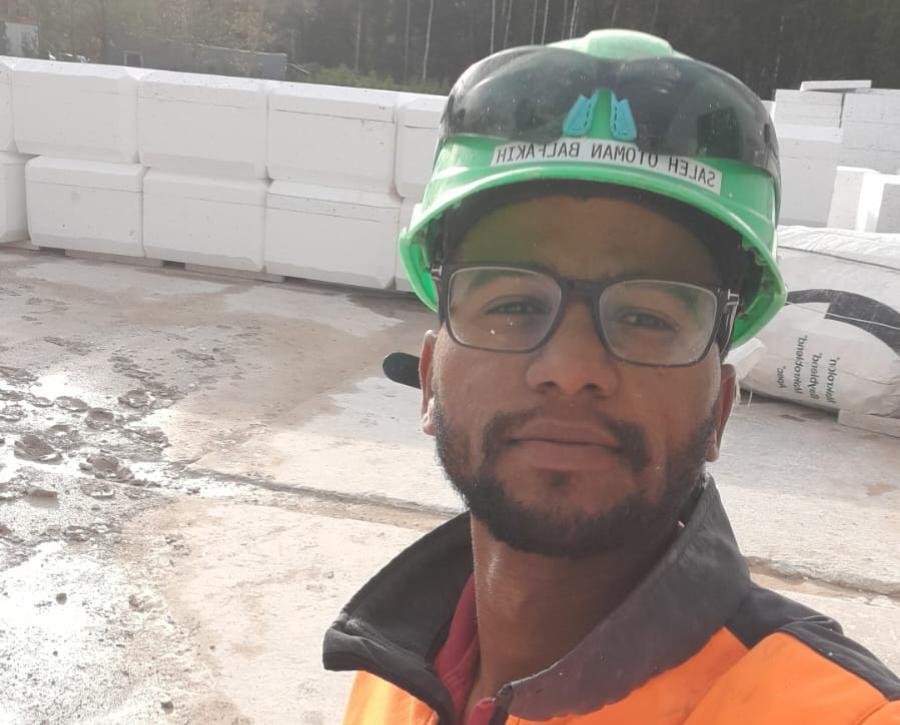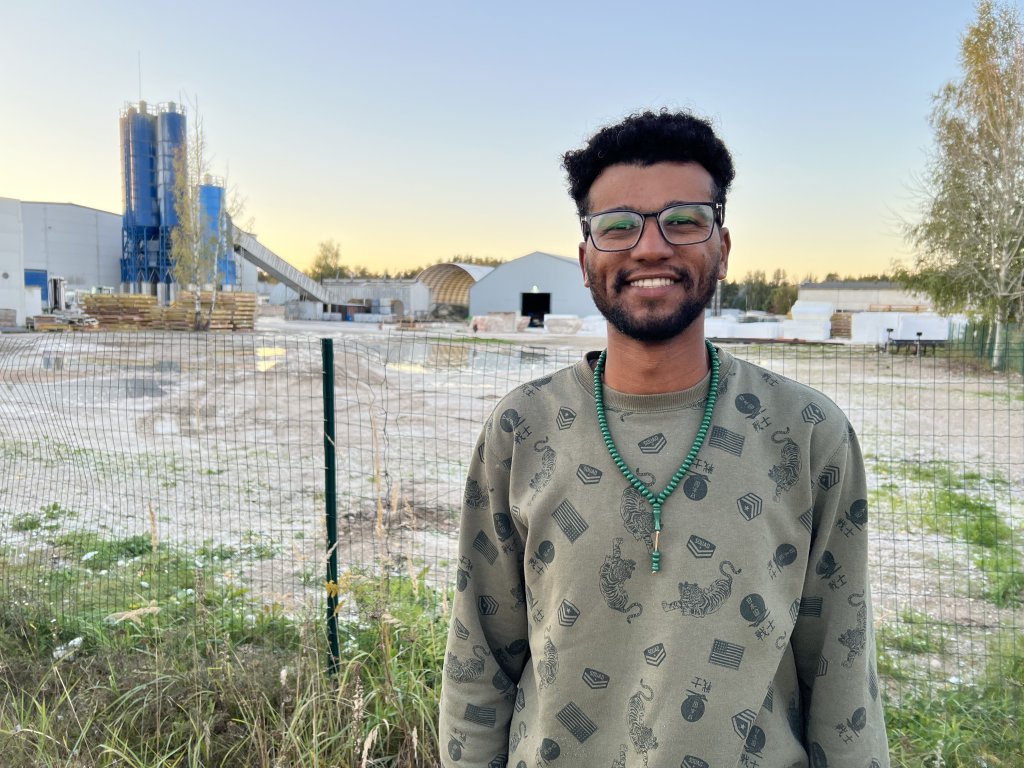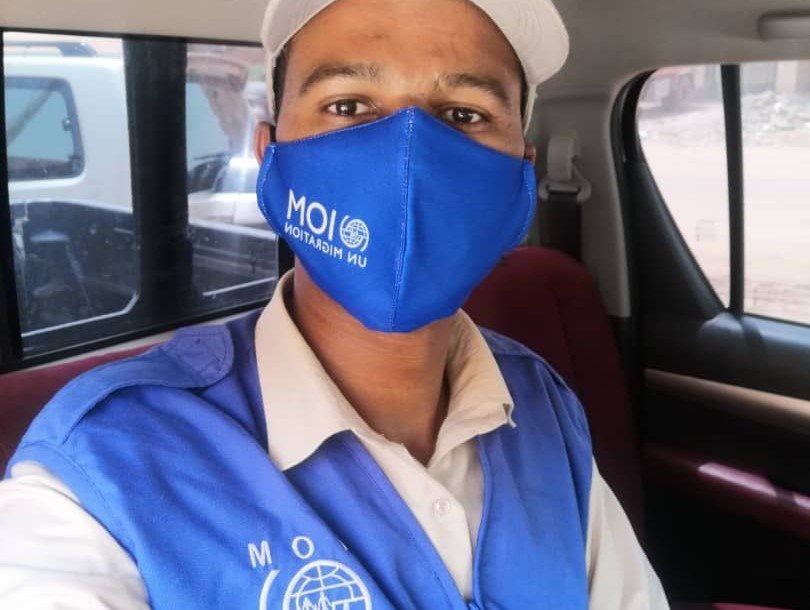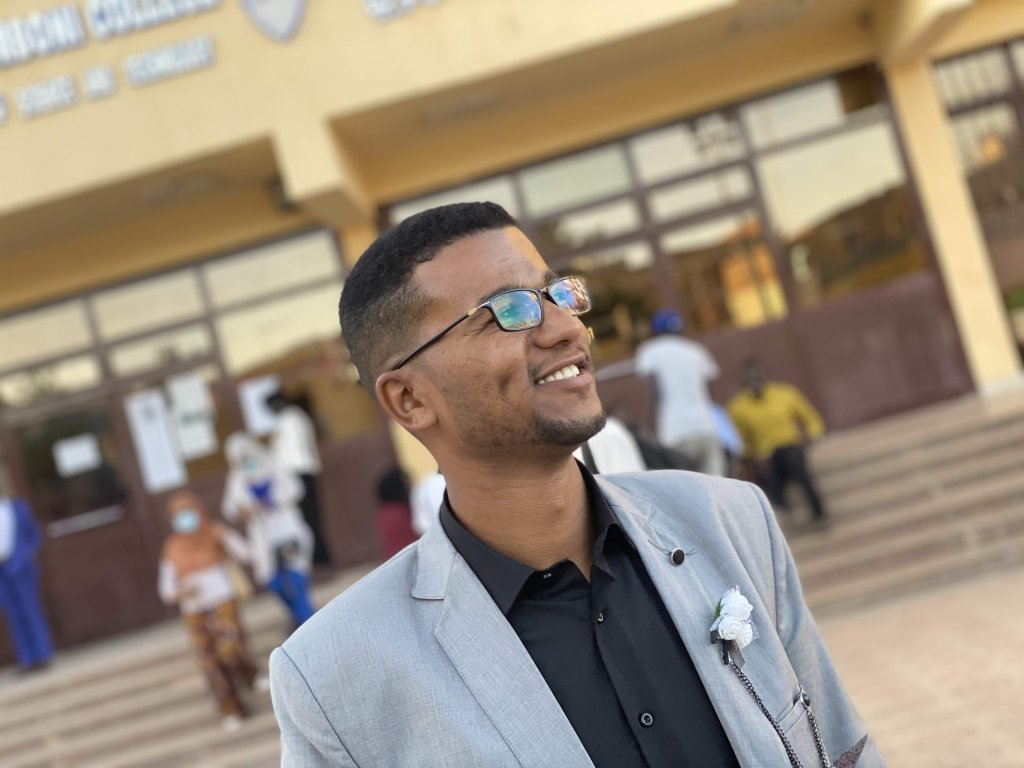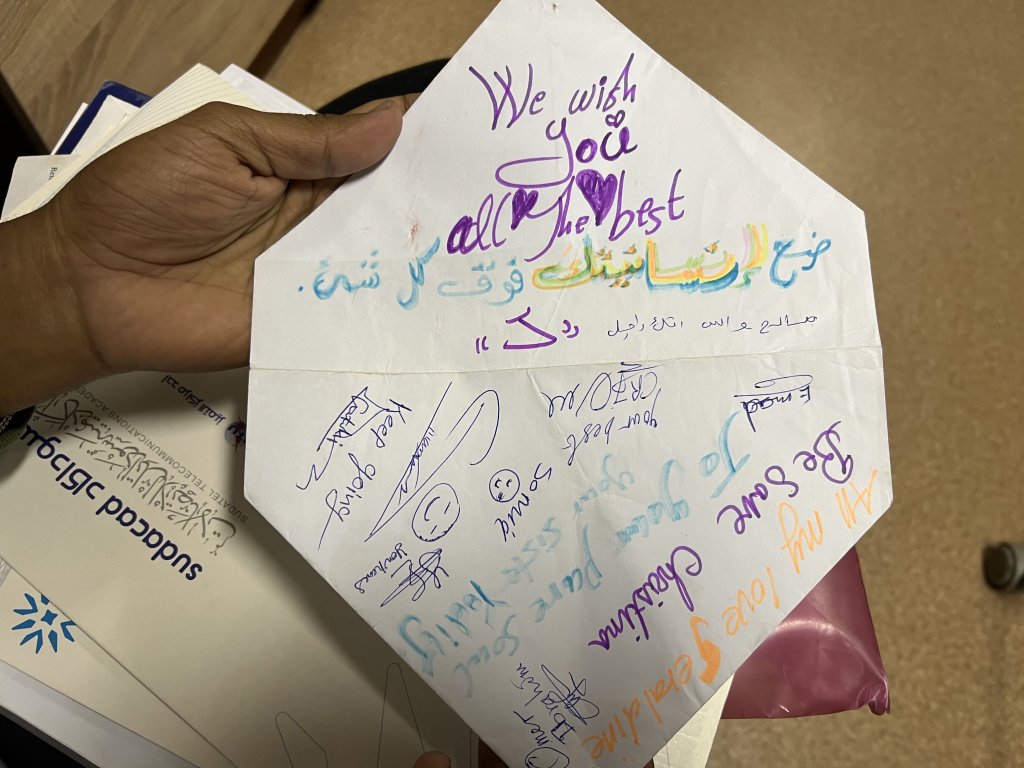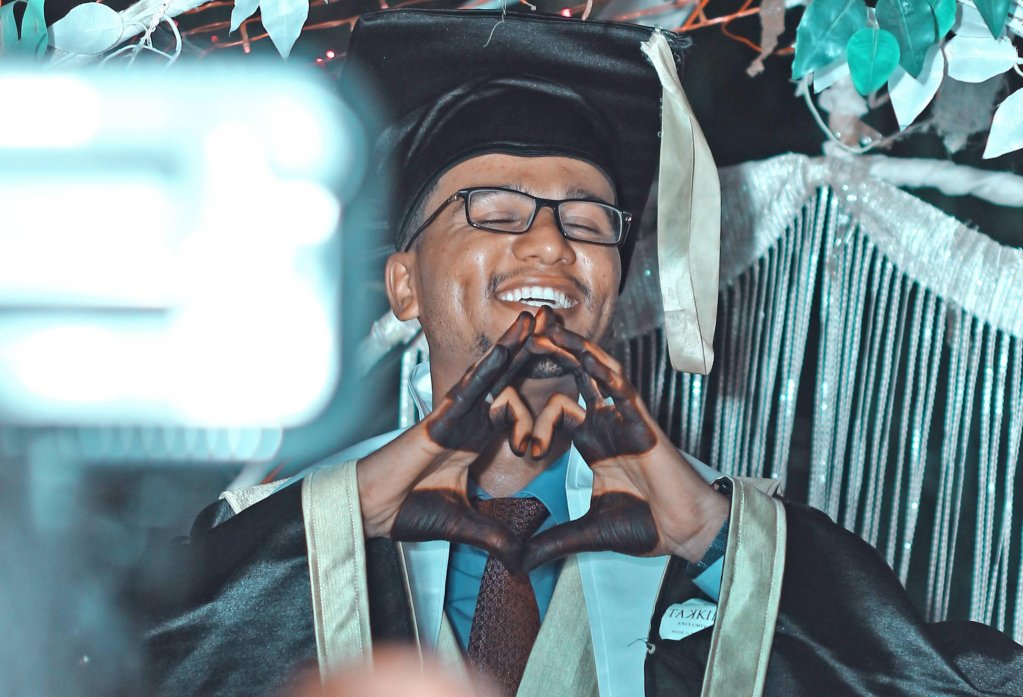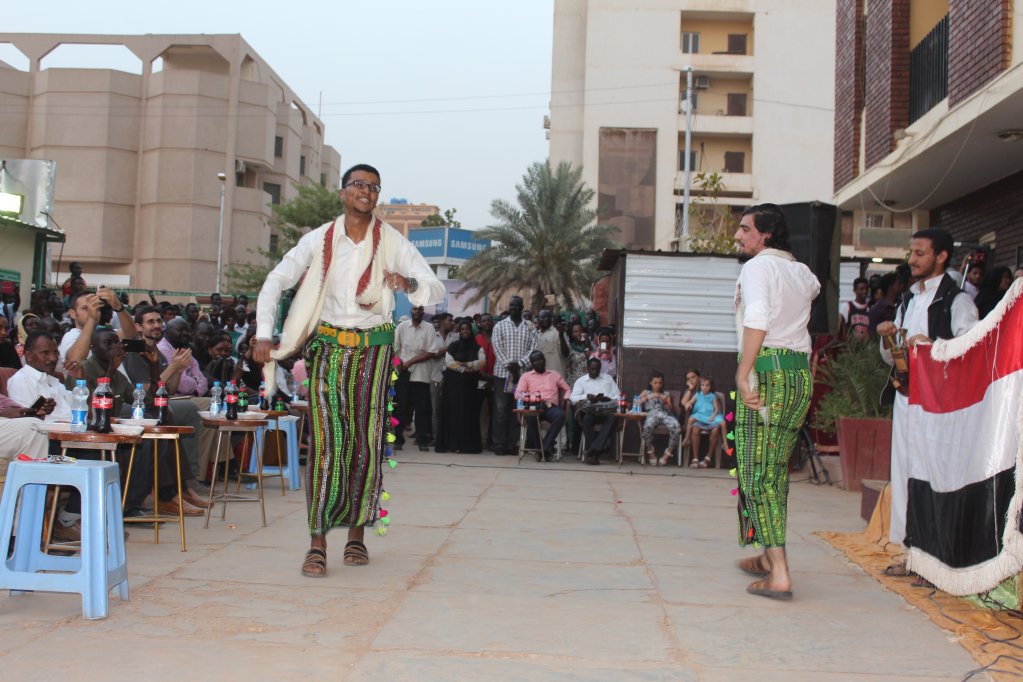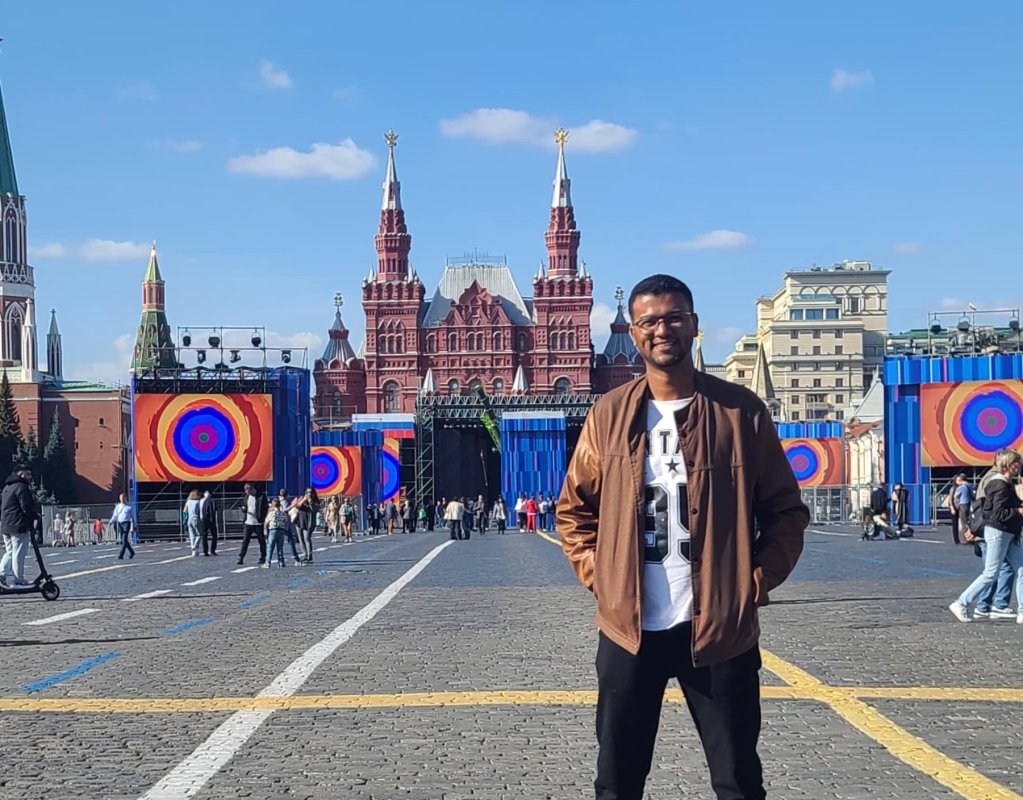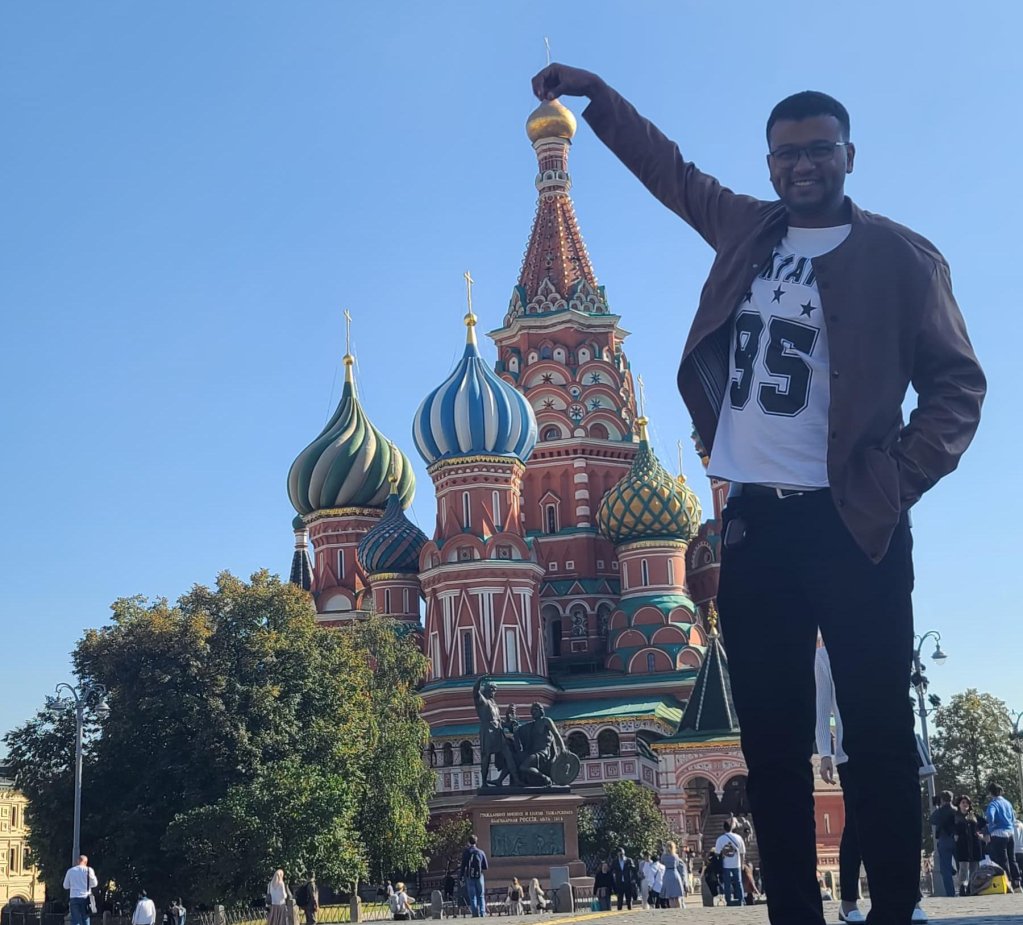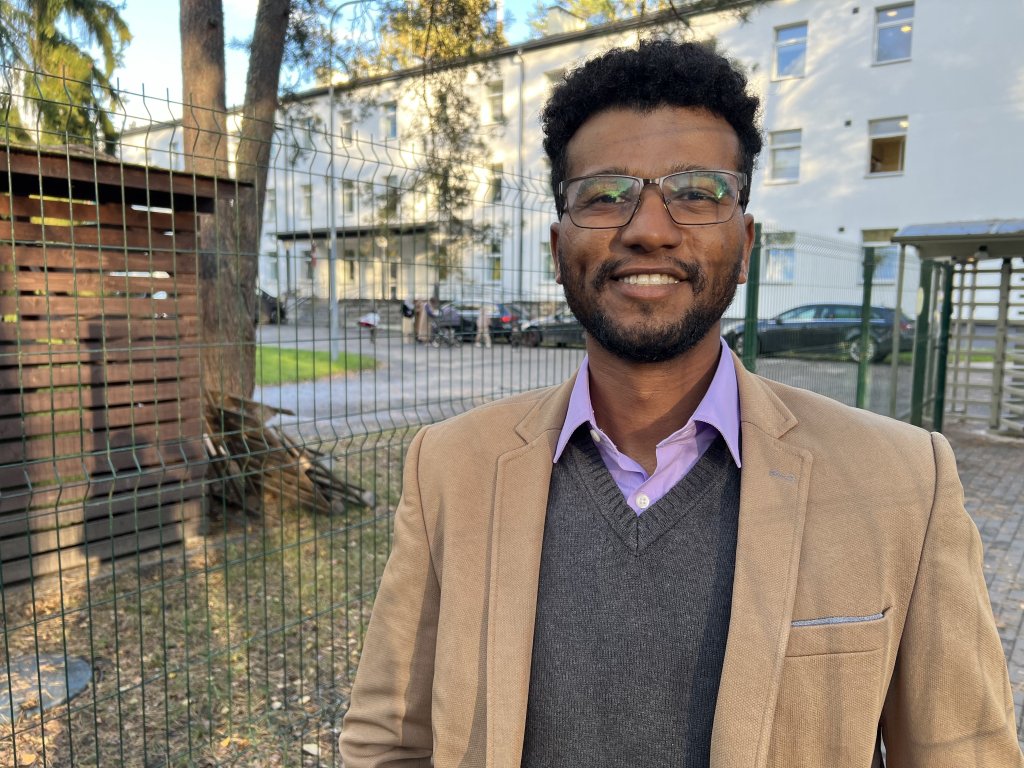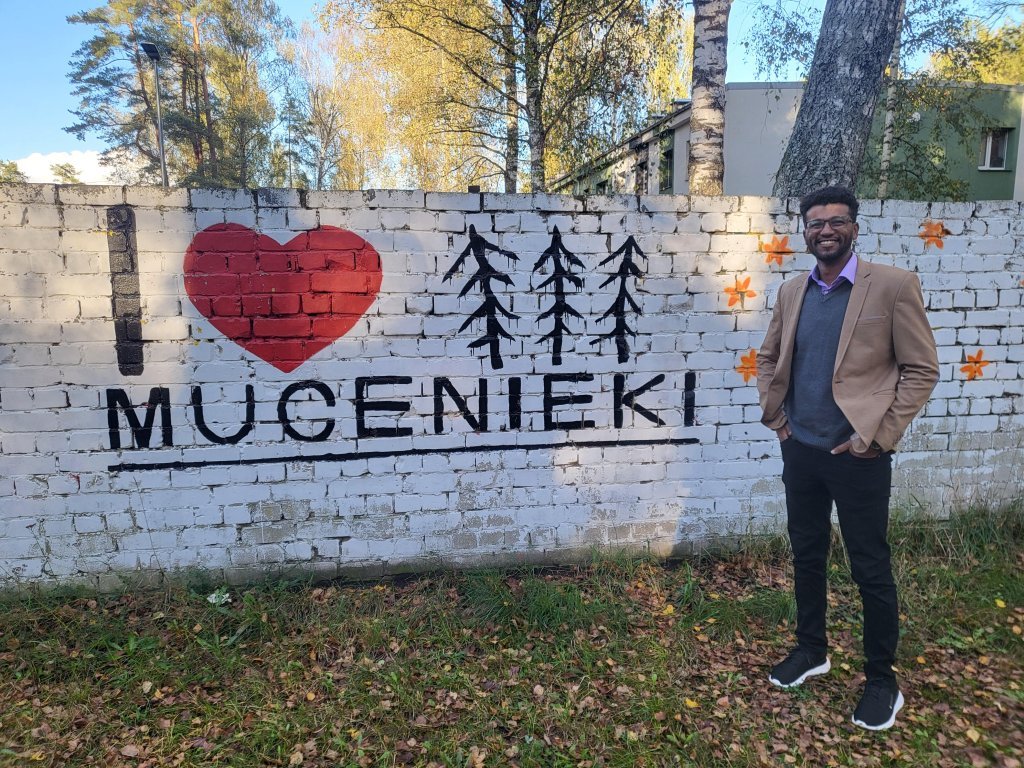Saleh Othman from Yemen arrived in Latvia in 2023 as an asylum seeker. InfoMigrants recently spoke with him there about his dream to live in Germany, the trials and tribulations of his eight-year journey, injustice – and how he wishes Europeans treated migrants.
When asked about the worst experience during his journey to reach Germany, which has been eight years in the making, Saleh Othman says it was the two bodies he saw in Latvia near the border with Belarus.
"I was thinking this could happen to me also. I was really afraid."
Saleh, a 28-year-old migrant who spent the last 12 months in Latvia, was born and raised in Yemen. In 2016, he fled from the devastating civil war there to Sudan, where he spent the next six years studying and working.
And although he's made it to the European Union and is now closer than ever to finally reaching his dream destination, he still feels like he hasn't arrived in Europe yet. The living conditions remind him of the ones he wanted to leave behind. "Latvia is like white Africa," Saleh tells InfoMigrants during a series of interviews in late September and early October in and around Riga.
'Without a test, you're just a normal person'
After spending the first seven months in a reception center, Saleh went to work for a Latvian company that makes prefabricated concrete elements for construction.
For each of the up to ten hours of manual labor a day, Saleh and his co-workers earn 6.4 euros before tax, which amounts to 900 euros for an average month, a bit more than Latvia's minimum monthly wage.
Together with around 20 of his co-workers, he lives in a dormitory next to the entrance of the factory grounds. Each resident has to pay 185 euros per week for a shared room and basic necessities like showers.
When asked what motivates him, he points to his laptop screen, which reads 'keep calm and just smile'.
"Whenever something bad happens, such as losing a friend to war, of course you will be sad," Saleh says. "But I'm a religious man, and our religion says that whatever happens to you, God does it for you, even if you don't know what it is now. It's a test from God to make you level up. Without a test, you're just a normal person."
Happy childhood, tragedy and war
Born in 1996 in the Yemeni capital Sana'a, Saleh grew up with six sisters and two brothers. His childhood was simple yet happy, he says. Five times a day, he went to the mosque with his father, who worked as a nurse.
But in 2009, when Saleh was 13, tragedy struck the family: Saleh's heavily pregnant mother was suffering from a high heart rate and had to be hospitalized. After her health deteriorated further because of a lack of blood plasma, she succumbed to kidney failure, among other things -- shortly after the fetus had died.
"I asked God: 'Why did you take my mother early? I didn't know her that well and still needed her,'" Saleh says with grief in his voice. "But since I've seen the war, I sometimes thank God that she didn't live to experience it."
By "war", he refers to the calamity that hit five years later: In 2014, Houthi rebel forces took over Sana'a, marking the beginning of Yemen's brutal civil war that's still raging to this day. Saleh says his neighborhood was the Houthi's first target.
"The situation got worse and worse, so I sent my sisters to our father," Saleh recalls, adding that he decided to stay and protect the home. "When the electricity went out, more neighbors left, so I sought shelter at my close friend's house."
That friend later died fighting against the Houthis, Saleh says.
Leaving Yemen
After half a year holding out in his family house, the Saudi-Arabia-led intervention against the Houthis started -- and with it, the bombing of civilian areas like Saleh's neighborhood. "When you heard the explosion, you knew you were safe." But one night, he woke up from the noise of an incoming shell, thinking it would kill him. "I went to a corner with a blanket in anticipation of it hitting our house. But it detonated close by," he remembers.
During this time, the Houthis also tried to indoctrinate Saleh and others. "They said 'We know everything about you. You are not with us, so you're against us.' I was one of the active community members, so they tried to bring me to their side," he tells InfoMigrants, adding that the Houthis also asked him to reveal his friends' names.
When the fighting became more or less bearable and his father didn't have enough money to send him to university, Saleh started to take English lessons and work different jobs, first in construction, then waiting tables and as a motorcycle chauffeur.
With the bombing still ravaging the country in 2016, he decided to leave. "From the very beginning, my goal was to get to Europe," Saleh says. "I heard there was a gate to get from Sudan to Libya, and from there to Italy by boat. My cousin had already reached Italy this way in 2015 after suffering in Libya -- and he went via Sudan."
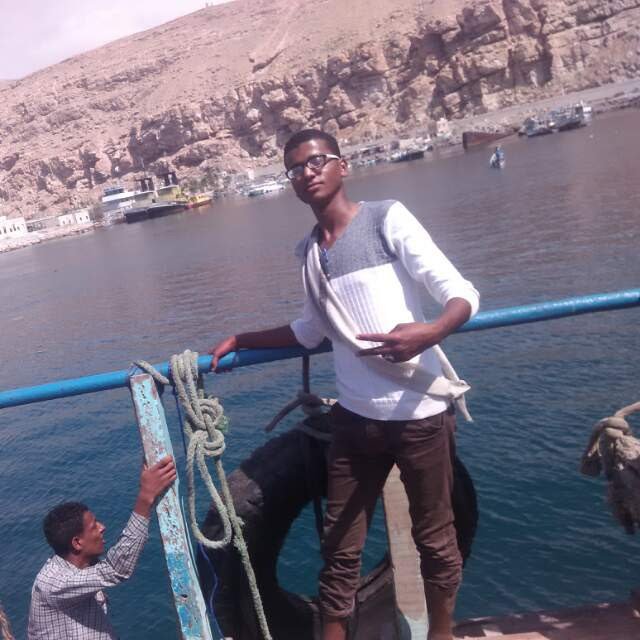
And so in February of 2016, Saleh took the only available route to Sudan -- a boat to Somalia across the Gulf of Aden used for bringing camels to Yemen in exchange for other goods, according to Saleh. Once he had saved up enough money in Somalia to buy a plane ticket, he flew to the Sudanese capital Khartoum in the fall of 2016.
Six years in Sudan
Thanks to financial support from his grandmother in Switzerland and other relatives, he enrolled at Comboni College, a private institution in Khartoum run by the Catholic Church, from where he graduated with a degree in computer science in 2020.
When he tried to land a long-term contract with IOM in 2022, he felt discriminated against in Sudan for the first time since he arrived six years earlier, he says. "They said 'we won't give you the job, because you are not Sudanese,' which made me very angry and hate Sudan."
From the day he set foot on Sudanese soil in 2016, Saleh kept his eye on his big goal: Reaching Germany. As a result, he was constantly looking for people who could bring him to Europe.
However, when he heard stories of torture and extortion in Libya and the mortal danger of crossing the Sahara, stories of deadly migrant shipwrecks in the Mediterranean Sea, and relatives warned him not to go through Libya, he opted for neighboring Egypt, where three of his sisters were living.
Shortly after Saleh left Sudan, in April 2023, civil war plunged the country into violence and chaos, having since killed tens of thousands and displaced more than three million.
From Egypt to Belarus
But when Egyptian authorities wouldn't let him enter the country, Saleh was forced to return to Sudan, from where he went back to Yemen. He tried Egypt again in November 2022 -- this time with a doctor's certificate in hand, thanks to which he received a six-month residence permit.
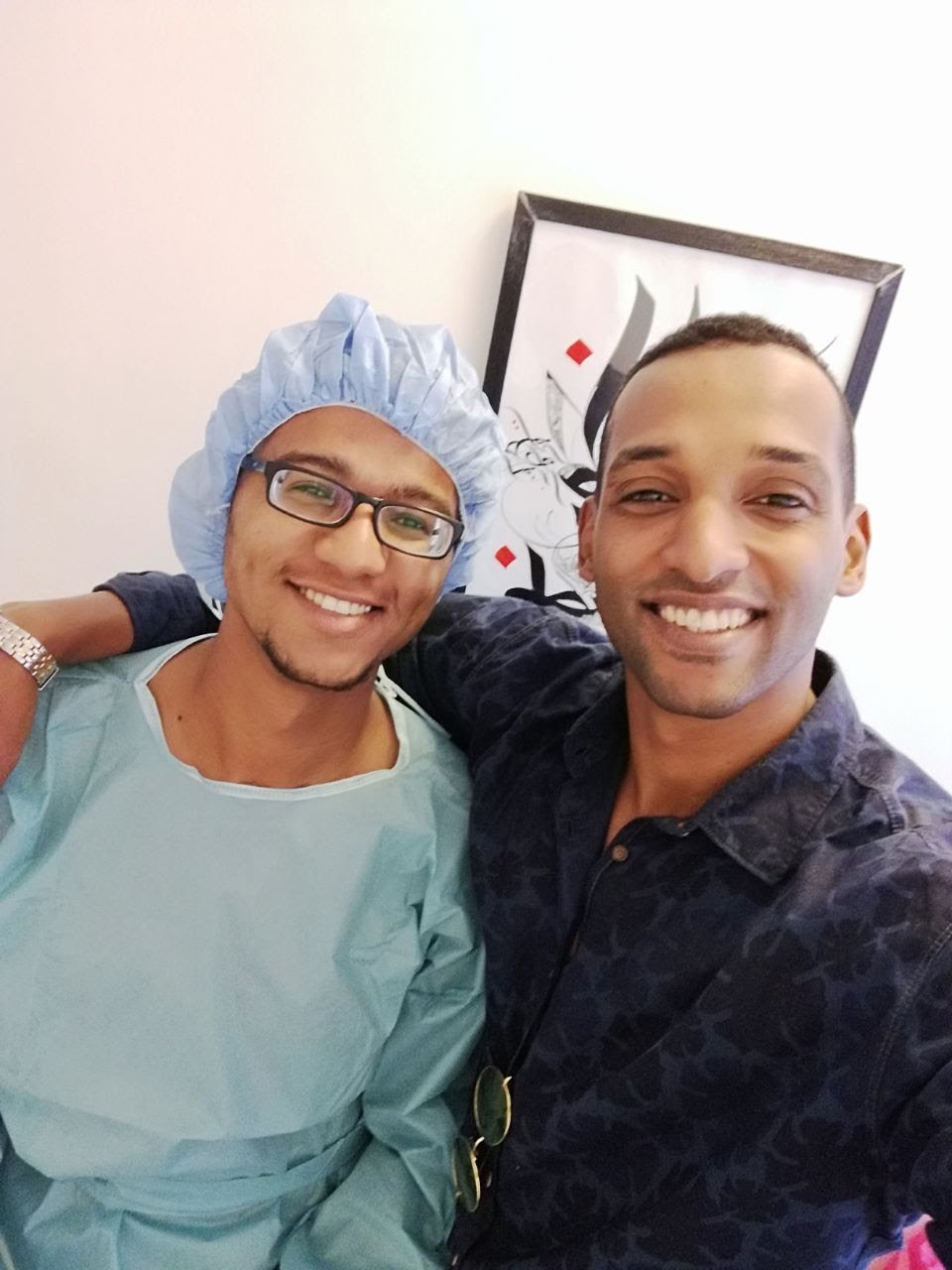
Most of his thoughts and energy during this time went toward planning the next step on his journey to Europe, he says. After neither visa applications to Turkey and Romania, an Erasmus Mundus scholarship to pursue a Master's degree nor a dancing class in Italy panned out ("Your age is off, we can't accept you"), he had to come up with a new plan.
It came to him in the form of a friend in Egypt who told him he could reach Germany in only seven days if he went via Russia.
Soon, Saleh found someone who successfully applied for a student visa on his behalf. After sending his passport to the Russian embassy in Saudi-Arabia, he says he had to pay 2,700 euros for university registration and the visa.
The visa would have allowed him to start a language course, but Saleh had other plans.
The day after he arrived in Moscow, a smuggler brought him and a dozen other Yemenis to neighboring Belarus in a "special car" overnight. Each of them had to pay the equivalent of 250 euros in rubles for the roughly 700-kilometer trip.
"This is when we stopped being human and started to be a product," Saleh says with a wry smile. Five different people would be involved in getting him to the EU: the person who organized the visa and university registration, someone who brought them from Russia to Belarus, a third person who drove them to the EU external border, a guide who helped them cross -- and the mastermind, a Syrian smuggler in Turkey, whom Saleh paid 5,000 dollars, but only if he reached Germany and claimed asylum there.
Crossing the border on foot
In Minsk, Belarus, Saleh stayed in an old house for 14 days at ten dollars a night. Residents weren't allowed to go outside to avoid being caught, so they spent their time planning the trip.
Initially, they considered Poland but heard warnings from migrants returning from there. "Polish border guards did bad things to them," Saleh says, including beatings and dog bites. Despite cautionary tales about Latvian border guards, Saleh and the other Yemenis decided to try Latvia nonetheless after seeing promising videos on social media about people who made it to Germany on this route.
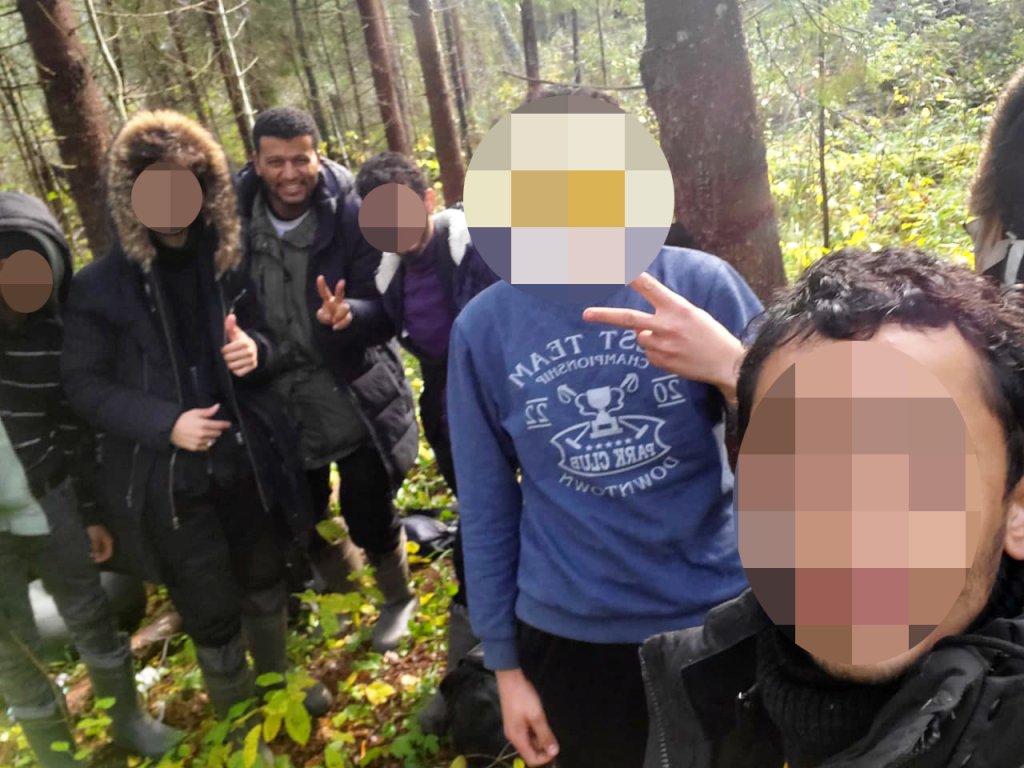
On a cold day in early October 2023, three cars with Belarusian drivers dropped Saleh and 12 other Yemenis near the border with Latvia after a four-hour drive. Equipped with water, energy drinks, dates and other snacks, they began their journey.
After only 100 meters, one group member had to stop due to nausea. Another, with an injured leg, struggled to continue. Eight Yemenis eventually turned back, leaving six -- including Saleh and the guide -- to press on.
After 15 hours of walking and running through the forest, they reached the Latvian border.
Ready to cut a hole into the border fence, "the guide said 'there's no fence, let's go!'," Saleh remembers with excitement. "This made us really happy, because our backpacks were heavy."
Death and deprivation
Shortly after entering Latvian territory, they made a horrific discovery: Two rotting bodies stacked on top of each other.
"We could see their stomachs. I really felt like there's no humanity," Saleh recalls, adding that the dead were female who looked Syrian. Thoughts like "You're just a body, not human" crossed his mind.
Saleh felt too weak to continue, but one in the group wouldn't accept it. "He told me 'If you die, I will die with you. Either we go back together, or we continue together.' He put his hand around my shoulders and helped me walk." This act of humanity and encouragement gave him the strength to continue, Saleh says.
Without water, they drank from streams and spent another night in the forest with damp clothes and water in their damaged shoes.
The next day, the group reached the pick-up location for their onward journey, which migrants refer to as the "taxi point", which was also organized by the smuggler in Turkey. Crammed into a small car with three doors, they crossed Latvia and Lithuania, only for Polish border guards to catch them at the Lithuania-Poland border.
Two Yemenis started running into the forest, Saleh says, but the border guards were faster. "I didn't have the energy to run. Maybe the driver and the authorities were colluding," he surmises. At least the smuggler made good on his promise to refund the promised 2,500 dollars since they didn't make it to Germany.
From 'products' to 'criminals'
Upon arriving at a police station, the Yemenis were given food and water, and their fingerprints and photos were taken. The next day, they were transported in a van to a detention center near the Lithuanian capital Vilnius, where they had to stay for 23 days.
"Until here, we were products," Saleh says. "Now, we were criminals."
Saleh says both the Polish and Lithuanian border guards refused to grant them their wish to claim asylum. "We told them 'We don't want to go back to Latvia, we saw two bodies there. Plus two of us are minors.' But they were rude and told us we have to go back to Latvia."
The time at the detention center, where they saw several people they'd met at the house in Minsk, was a "really bad experience," Saleh says, noting that they were only allowed to use their phones for one hour each day, starting on day ten.
They were eventually taken to the Latvian border from where they were picked up by a normal van. "We finally felt like humans again," Saleh says.
They arrived at a reception center in the village of Mucenieki outside of Riga on November 10 last year.
After an on-the-spot (asylum) interview, Saleh and the other two remaining members of the group reluctantly had their fingerprints taken for the second time. "They told us they'll send us back to the forest if we refuse," Saleh claims. "I thought to myself: 'Welcome to the EU.'"
Together with some 200 other migrants, Saleh spent the next eight months in the reception center for asylum seekers in Mucenieki (for his experience there see this story). After a second asylum interview, he received alternative status, which gives migrants temporary residence for one year.
He says the Latvian authorities' decisions on asylum cases feel arbitrary. "I think the main reason they gave me alternative status is the war in Yemen, but they wouldn't believe me that I ran from the Houthis, for instance. They took from my story only what they wanted."
Saleh appealed the decision, which limits his whereabouts and work to Latvia, but it was rejected. In 2022, the recognition rate for Yemenis in the EU was one of the highest at 84 percent.
Another test
Saleh says his first experience in Latvia's job market -- when he became eligible to work three months after he received his status -- was a rip-off: He was only paid a quarter of the 600 euros he was promised for a one-time cleaning job.
During that time until he took up the aforementioned job at the factory that makes prefabricated concrete elements, Saleh also volunteered for Catholic charity Caritas helping them feed Ukrainian refugees.
Now Saleh's resolve is being tested yet again: In early November, he was informed that there was not enough work in the factory as of November 8, claiming it's because of low demand over the winter.
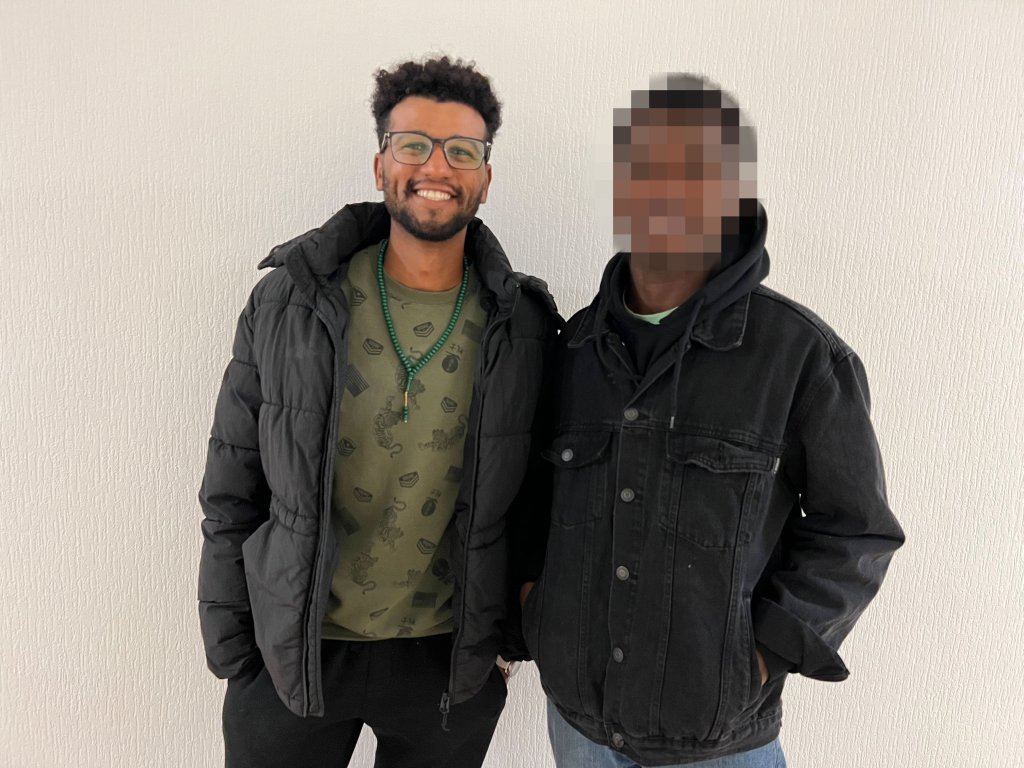
"I feel frustration and despair, I'm not prepared for this disaster," Saleh told InfoMigrants after he was laid off. "I didn't work at the factory for a full year, so I won't get social benefits. Plus there will be fewer job opportunities available in winter. I am really lost."
'One day you might need their help'
Saleh has managed to overcome more challenging situations: fleeing war in Yemen, spending six years in Sudan, and surviving the Belarusian-Latvian border region migrants call the 'jungle'. Eight years after leaving home, he is closer than ever to reaching Germany, the place that's been his final destination all along. However, his year in the EU does not come close to the image of Europe he pieced together in his mind over the years.
"To be honest, Egypt is better than Latvia. I've been to Germany, Switzerland, Finland -- these countries really feel like Europe," he says, explaining that he can travel through the Schengen free travel zone with alternative status. "No one wants to stay in Latvia," he adds.
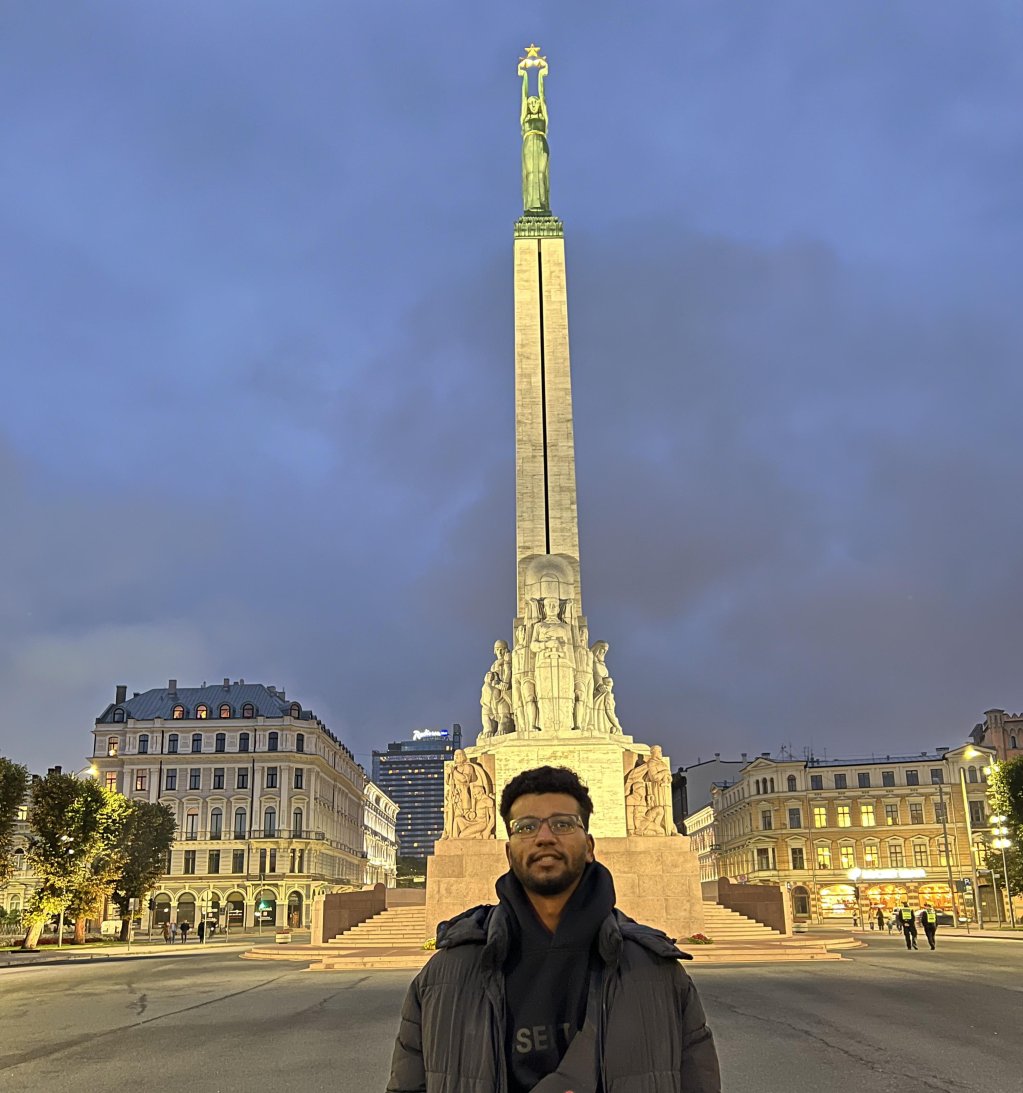
Being able to go to Germany is not entirely unrealistic: Once he's had alternative status for three years, Saleh can apply for permanent residence status and possibly take up work in Germany. If that doesn't pan out, he will try to go to the UK or the US, where he has relatives.
"I'm longing for a place where people can start from scratch, learn the language and improve themselves," he explains. "People should be appreciated for the value they bring, no matter their skin color, gender, age or religion."
Once he's found a place he considers home, he wants to work in human rights there and eventually return to Yemen or Sudan to bring his new skills to bear. Saleh also has a message to Europeans.
"Today, you are in a good position. You have safety, peace, your own homes. This is a good thing," he tells InfoMigrants. "But the world is round, as we say in Arabic [meaning what goes around, comes around], and maybe tomorrow you'll be in our place without shelter or safety. So please treat immigrants like humans, because one day you might need their help."

